Farewell to Italian Singer-Songwriter Lucio Dalla
The news runs, passes from mouth to mouth ... Lucio Dalla has died ... He died of a heart attack ...
We are never ready to hear news like this one, we are astonished, amazed, frightened, angry, then sad very sad, speechless. C'est la vie, that's life ...it comes before everything, except for death... Fate betrays us!
Suddenly we feel part of the same family, a family that has lost its head...because this is what Lucio Dalla was: an affectionate father who was always present with his enthusiasm, with his innovative ideas for Italian songwriting, and with his great love for music. Music has been with him up to his last breath and this consoles us. Lucio has gone as he would have wanted to, while on tour, making his music.
Nobody ever dies completely, something of his will always stay alive within us!
- Italian singer Vasco Rossi on facebook
Waking up on a Thursday morning with phone calls from Italy and messages on facebook that let you know that one of Italy's greatest singers and songwriters is gone. At first you do not know if it is true or if you are still dreaming, even his website (www.luciodalla.it) does not report the news, but no, more and more sites pick the story up as the seconds tick by, and it is right there, black on white, Lucio Dalla, the author of the national super hit Attenti al lupo and the classic love song Caruso, performed at a concert in Montreaux, Switzerland, last night (he was supposed to have a series of concerts there) and after breakfast, this morning, has had a heart attack and died. He would have turned 69 on march 4th.
All reports say he was feeling fine, nobody was worried about his health because there were no reasons to worry. “He and Michele Mondella, founder of Midas Promotion a communication company that promotes music and entertainment, spoke last night after the concert and he was very about about its outcome,” Michele Mondella's assistant told the press, “In the morning he had breakfast, made a couple of calls and then he had the heart attack.”
“At the moment,” she continues “the pain is so strong that there is nothing we can do to cope with it or to remember the singer from Bologna” who collaborated with Midas since 1997.
Italy's president, Giorgio Napolitano was one of the first who commented on the artist's passing. “(Dalla was) a strong and original voice who contributed to renew and promote Italian music in the world. He was an artist beloved by so many Italians of several generations.” International star Laura Pausini remembers on her twitter account how when she was only 8 years old Dalla saw her singing in a restaurant in Bologna and he encouraged her to pursue her career, while young singer Francesco Renga is perplexed “I was with him just a couple of weeks ago at the Sanremo festival... His work will live forever,” he said. Sanremo was indeed Dalla's last television appearance. He participated with his protegee Pierdavide Carone with the song Nanì.
Meanwhile the melody of his songs echo on the streets of his native Bologna. The windows of his apartment on Via D'Azeglio are closed but out of them comes the music of his successes, songs like Canzone and Caruso.
Discovered by another Italian singer and songwriter, Gino Paoli, Dalla started performing in the 1960s. His debut at the music festival Cantagiro in 1965 was unsuccessful “probably due to his appearance and to his music, which was considered too experimental for the time. His first album, 1999, was released the following year. His next album, Terra di Gaibola (from the name of a suburb of Bologna), was released in 1970 and contained some early Dalla classics. His first hit was 4 Marzo 1943, which garnered some success at the Sanremo music festival. Regardless of its title, the song became popularly known as Gesù bambino. Another song Piazza grande, which Dalla would sing again at Sanremo, was also a success.” wikipedia writes. In 1977, Dalla's first album with songs written by himself How Deep is the Sea came out and it was a success. He produced new albums nearly every year over the next few years, including the popular Banana Republic (an album developed in 1979 in collaboration with singer-songwriter Francesco De Greogri and Ron). The hit single Attenti al Lupo (1990) gave him wider success in Europe and sold nearly 1.4 million copies.
Dalla, whose musical genres ranged from folk to jazz to classical, sold millions of records worldwide, and he toured abroad frequently, including in the United States. He had eclectic artistic interests: he also composed an opera Tosca. Amore disperato, inspired by Puccini's Tosca, he worked on several Tv shows, he discovered new talents, composed songs for some of Italy's most famous film directors, including Mario Monicelli and Michelangelo Antonioni, and he curated an art gallery in Bologna.
Yet his greatest international success was the haunting melody Caruso (1986).It sold 9 million copies worldwide and was sung by numerous international artists, including the late opera great Luciano Pavarotti (who sang with Dalla himself at a 1992 concert in Modena) and Andrea Bocelli (who recorded it his in first international album Romanza). This piece is also on Josh Groban's album Closer, which sold over 5 million copies in the United States alone.
Carusowas written by Lucio Dalla in the summer of 1986 and released the same year in October on the album Dall'America Caruso. The song came to be this way: Lucio Dalla ship’s broke down in Sorrento, and the only place to stay was a luxurious apartment in the Grand Hotel Excelsior Vittoria, the same apartment where the famous Italian tenor Enrico Caruso had lived the last two months of his life and in which today we can find his books, photographs and his piano. A man who owned a bar in the port told Lucio this story, and he gave it to the world with music: “Caruso was sick with throat cancer but this condition did not prevent him from giving singing lessons to a young woman, a woman he was in love with. On a hot summer’s night, Caruso, who did not want to give up singing to her, he was very sick but he had people carry his piano to the terrace that overlooked the port and began singing a passionate declaration of love and sorrow.
His voice was so powerful that the fishermen, hearing him from afar, returned to port and anchored their boats under his terrace. The lights of the boats were so many that they looked like the stars, or the bright lights of New York's skyscrapers. He was weak but he kept singing, gazing into the eyes of the girl who was standing by the piano, looking at his with admiration. That night his illness worsened. Two days later, on August 2, 1921, he died at the age of 48. That was his last concert, performed in front of a unique audience… the sea, the stars, the fishermen, the lights of the boats and his beloved. Dalla's song narrates the drama of that night, with lights and shadows of the past, life and death.
Just like the great Caruso of his song, Dalla got the chance to sing his last concert for those who looked at him with admiration and loved his music.






























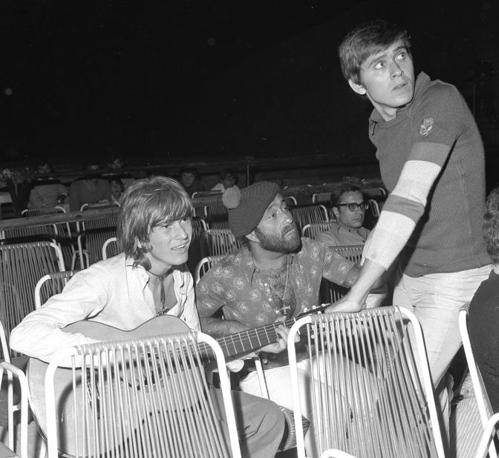
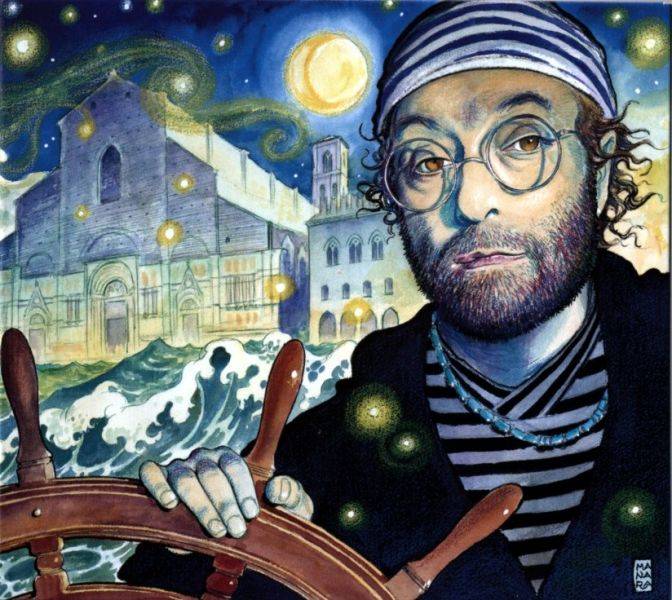
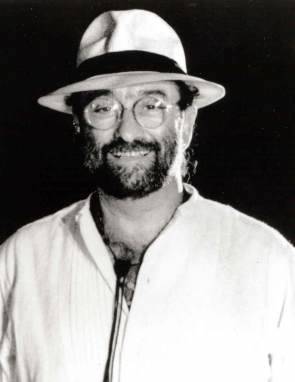
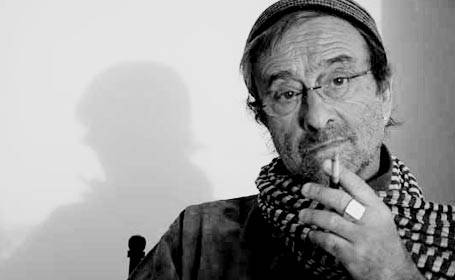
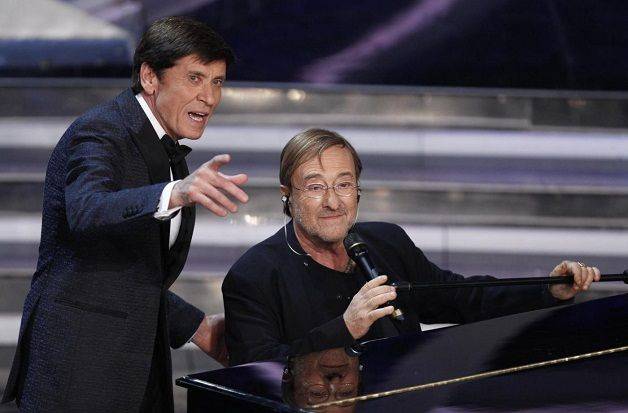
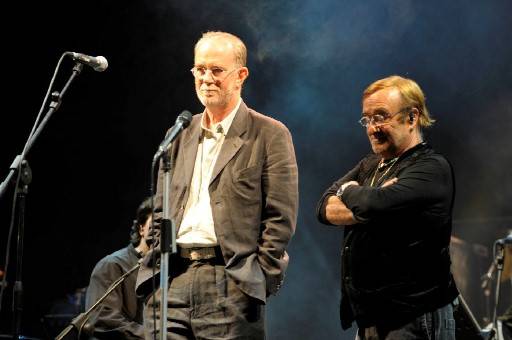



i-Italy
Facebook
Google+
This work may not be reproduced, in whole or in part, without prior written permission.
Questo lavoro non può essere riprodotto, in tutto o in parte, senza permesso scritto.